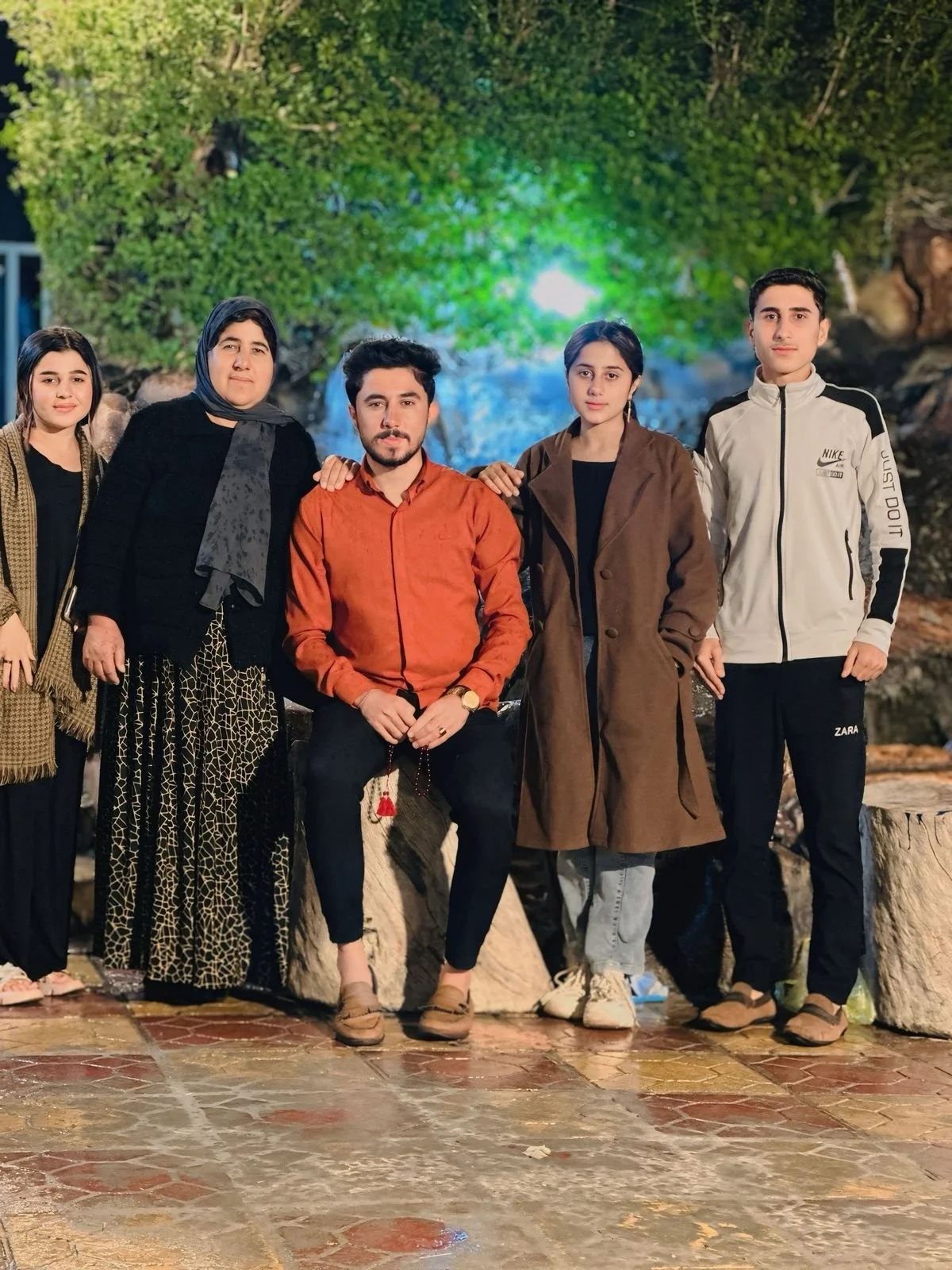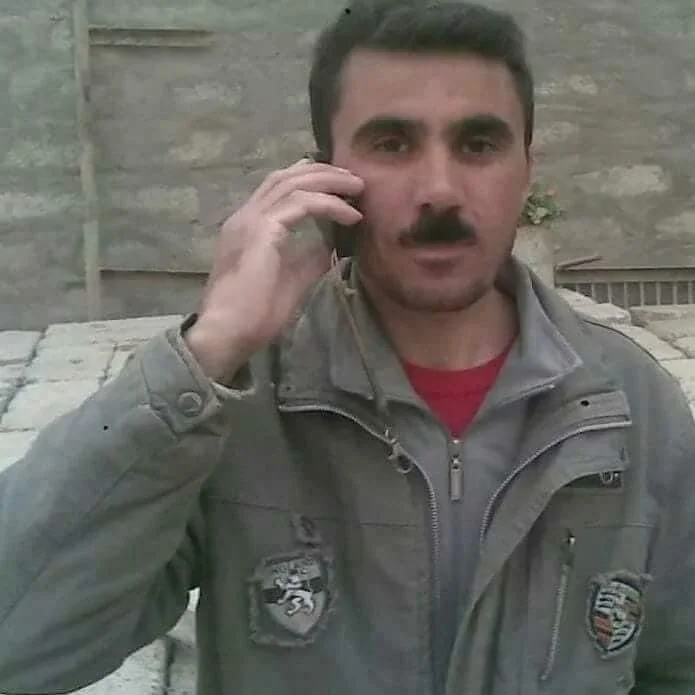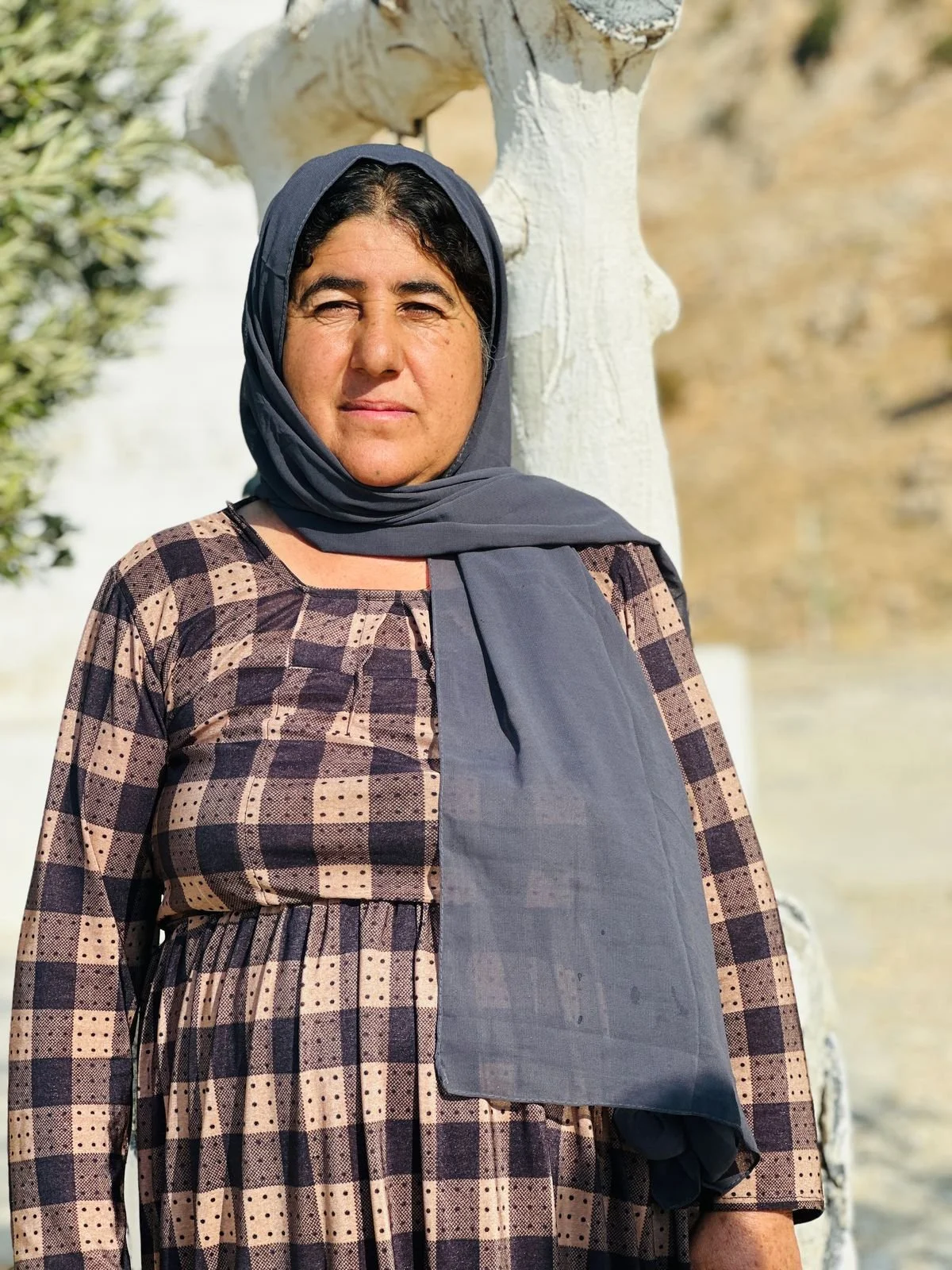Survivor Stories: Sari – The Woman Who Carried the World
A Peaceful Life, Suddenly Shattered
In the quiet outskirts of Sinjar, in a place called Al-Waleed complex, Sari lived a life rooted in simplicity and joy. Her days were spent tending the land, surrounded by the laughter of her five children and the steady presence of her husband, whose strength anchored their home. She carried new life within her – a quiet promise of hope. The rhythms of their simple existence felt as enduring as the earth beneath them.
In early August 2014, without warning, terror came roaring through their streets – the sound of engines, the shouting of men whose eyes held no trace of mercy. Terrorists from the so-called Islamic State (ISIS) swept across Sinjar like a storm. Sari clutched her children as their world collapsed into fear and confusion, the warmth of home replaced by the cold grip of chaos. In an instant, the ground beneath them gave way, and they were cast into a nightmare of violence and uncertainty – a wave of horror that wiped out the safety, belonging, and quiet beauty of the life they once knew.
The First Devastating Blow
That first day brought more than terror – it tore Sari’s world apart. Amid the chaos, her husband, the gentle strength beside her, was taken. She saw his face one final time, caught in a silent plea, before he vanished into the hands of ISIS captors. It felt less like separation and more like amputation – an essential part of her ripped away. The children, too young to fully grasp what was happening, clung to her, their cries mirroring her silent grief. What was once a family became fragments, bound not by love but by fear, each moment now dictated by the cruel whims of extremists.
Three Years of Unbearable Suffering
Sari’s captivity turned gentle days into torment, stripping her of freedom, identity, and hope. She was pregnant – carrying life while surrounded by death – and the brutality she endured left no space for mercy. Yet it was her children who weighed heaviest on her heart. Every pang of hunger, every ache in her body, was magnified by the fear she held for them. Their small hands clung to her; their eyes, once bright, had grown wary and hollow from witnessing horrors no child should ever see – executions, torture, bombings. Though desperately in need of protection herself, she summoned what strength she had to shield them, to preserve some thread of normalcy. But the violence was relentless, a tide that swallowed them all.
A Mother’s Unimaginable Loss
Within this world devoid of mercy, Sari gave birth – tearful, malnourished, and utterly alone. Her son entered life not with peace, but with struggle, his first breath taken in captivity’s poisoned air. Frail and starving, Sari’s body could not nourish him. She watched, powerless, as his cries faded, her desperate efforts to feed him met only with emptiness. Within days, he died in her arms – not from illness, but from deprivation. She buried him in Kaser Al-Mehrab, a desolate, cursed place that became the grave of her shattered hopes. As the earth closed over his tiny body, she felt a part of her own soul vanish with him – a grief so deep it would echo within her forever.
The Endless Nightmare of Enslavement
For three unrelenting years, Sari and her children were trapped in a waking nightmare – trafficked and stripped of their humanity again and again. From the barren ground where she buried her infant son, they were dragged to Syria, a new place of torment filled with the same fear and despair. Enslaved and at the mercy of their captors’ cruelty, each day brought fresh humiliations, each act of violence another wound to her spirit. Her children, once full of life, now flinched at every sound. The horrors they witnessed – unspeakable acts that no human should endure – left marks deeper than scars. Nights were the cruelest – her mind replaying horrors already endured, and imagining those still to come. There was no help, no relief – only the cold indifference of their tormentors and the suffocating dread of what each moment might bring.
Her grief – the separation from her husband, the helpless death of her newborn, the constant danger to her remaining children – was not just a weight she carried but a mountain pressing down, threatening to crush her entirely. And yet, somehow, through the exhaustion, the hunger, and the fear, she found a strength that defied all logic. A mother’s will to survive, to protect, to endure. It rose not from hope, but from the raw, desperate need to shield her children from a world gone mad. That strength – fierce, trembling, and rooted in love – became her only lifeline in a place where no mercy could be found.
A Daring Escape
After three years of unimaginable torment, a fragile ray of hope finally pierced the darkness. The escape was a blur – driven by desperation, courage, and a mother’s fierce resolve to reclaim life for her children. Though her body ached and her spirit was worn thin, Sari ran. With each bare step on the unforgiving ground, she broke not only physical chains but the invisible ones of terror and despair that had bound them. The air shifted as they crossed into safety – once thick with death, it now carried the sharp, unfamiliar taste of freedom. But even liberation bore the weight of memory. Their escape was not a clean break, but a defiant emergence from the abyss. Sari and her children had endured what should have destroyed them. They had survived – and survival itself was a victory over those who tried to erase them.
Carrying the Weight of Loss
Freedom, when it finally arrived, was not the joyous relief Sari might have once imagined. It came heavy with grief, shadowed by the pain of all she had lost. Foremost was her infant son – born into captivity and buried in the desolate soil of Kaser Al-Mehrab – his brief, unlived life a quiet accusation against a world that failed to protect him. And then, her husband – the love of her life, taken from her on that first day of horror – remained a constant presence in her memory, not as a whisper but as a relentless ache. His absence was a wound that never closed. The life they had built, the family they once were, had been shattered beyond recognition. Sari did not merely remember her losses; she carried them within her – raw, open scars that throbbed with each step forward, a constant reminder that survival carried its own pain.
A New Fight for Survival
After escaping captivity, Sari and her children had nowhere to go but a displacement camp, where they lived in a flimsy tent with heavy hearts and exhausted spirits. With her husband gone, she was left to bear the responsibilities of both mother and father – her own need for rest and care pushed aside by the urgent need to survive. In a world that felt cold and indifferent, she worked tirelessly with blistered hands for less than four dollars a day, barely enough to meet their most basic needs. There was no one to help, no one to share the burden. Each morning, she woke drained and aching, yet she pressed on. The hungry eyes of her children, their small and simple hopes, were the only strength she had left.
Returning to a Ruined Home
After three years in captivity and another three displaced, Sari returned to her home in Sinjar – not to find comfort, but to face devastation. She had clung to memories of a place once filled with love and life, but what awaited her was a hollow ruin. The fence was torn down, the house stripped bare – looted of every possession, every trace of the life she once knew. Even the electricity was gone, leaving her and her children in a darkness that felt deeper than night – a reflection of the grief and emptiness that now filled her heart.
The Slow Climb Toward Self-Reliance
Slowly – almost imperceptibly at first – things began to change. Sari found herself rising, if only a little, no longer haunted by the fear of how to feed her children. With nothing left, she and her children received support from Nadia’s Initiative, including livelihood assistance, educational opportunities, and rehabilitation services that helped them begin to rebuild their lives. Later, they were granted protections under the Yazidi Survivors’ Law, which formally recognized the crimes they endured and laid the groundwork for state-supported reparations, rehabilitation, and reintegration. For the first time in years, they could begin to rely on themselves. Yet even as stability grew, true peace – emotional closure, healing from loss – remained elusive, just beyond reach.
The Enduring Scars of Trauma
Sari had not simply lost her sense of safety and belonging – they were violently torn from her. The nights still brought no rest, only memories that cut deep: her infant’s death, her husband’s absence, and the cruelty of their ISIS captors. These wounds had not closed. Survival didn’t end the pain—it reshaped it. There was no comfort, no space to breathe, no strength left for herself. And still, she endured. What kept her moving was something instinctive and unwavering: the fierce, consuming love for her children – a love that was stronger than pain, despair, and exhaustion. It was the only light left, and she carried it like a torch through the dark.
The Unbreakable Power of Motherhood
Sari, a woman who has endured the unimaginable, continues to rise – to work, to care for her children, to reclaim her life. She is the embodiment of the unbreakable spirit of the Yazidi woman – and the fierce, enduring power of a mother’s love. Her quiet fight for dignity, for her children, and for a measure of peace in a world that failed her is not over. It is a steady, powerful song of survival – an echo of pain too great for any human to bear, yet carried with strength that defies understanding. A strength that endures, not in spite of her suffering, but because of it.






